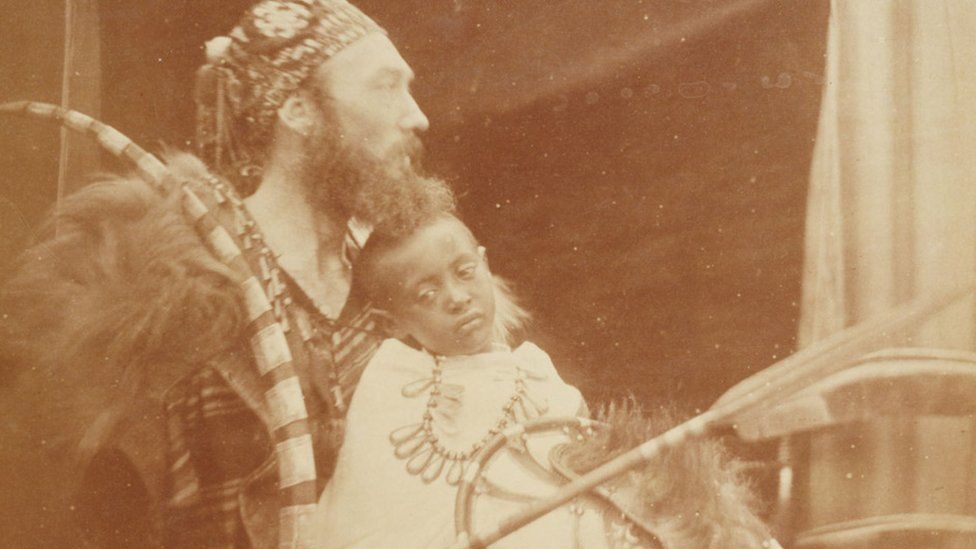A lock of hair from a young Ethiopian prince, who died over 140 years ago, has been handed over in the UK to representatives from his home country.
In 1868, British soldiers took Prince Alemayehu away after invading the fortress of his father, Emperor Tewodros II, who then killed himself.
The crown prince died aged 18 in 1879 after an unhappy upbringing in Britain.
He was buried at Windsor Castle near London, but recent requests to have his body returned have been turned down.
One of the prince’s descendants, Fasil Minas, expressed hope that the handing over of the prince’s hair could pave the way for his body to go back to Ethiopia.
- UK rejects calls to return Ethiopian prince’s body
At a ceremony in London on Thursday evening, Ethiopia’s ambassador to the UK Teferi Melesse took possession of the lock of hair, as well as a number of other artefacts that had been looted from Emperor Tewodros’s Maqdala fortress.
He welcomed their return, saying that they will go back to their rightful place, where they can continue to inspire and educate generations to come.
He said that Ethiopia would continue to press the UK to return more items seized from the fortress.
The prince was taken to London aged just seven, where his status as an orphan elicited the sympathy of Queen Victoria.
She agreed to support him financially and put him under the guardianship of Captain Tristram Charles Sawyer Speedy, the man who had accompanied the prince from Ethiopia.
The Scheherazade Foundation, which facilitated the return of the lock of hair, said it had originally been in the possession of Captain Speedy.
Leonie Turner, a descendant of Speedy who handed over the hair in London, told Canadian broadcaster CBC that she had discovered the artefact among her family heirlooms.
“I felt Prince Alemayehu’s hair was a long way from home,” she is quoted as saying.
Alula Pankhurst, a member of Ethiopia’s Heritages Restitution National Committee, told the BBC he welcomed the return of the hair but said this should just be the start.
“The restitution of Ethiopian artefacts looted by the1868 British expedition to Magdala is important for restorative justice and an excellent way to build better relations and collaborations between British and Ethiopian institutions,” he said.
There have long been calls for the return of the prince’s body with a fresh demand from his descendants in May.
But in a statement to the BBC, Buckingham Palace rejected the call, saying exhuming the prince’s remains would disturb the remains of others buried in the catacombs of St George’s Chapel in Windsor Castle.
